
MBTAAnalysis: A look inside the MBTA
0 Comments
/
The MBTA shuttles over a million passengers a day around Greater…
 https://pioneerinstitute.org/wp-content/uploads/CloseupClock-1.jpg
739
1244
Mary Connaughton
https://pioneerinstitute.org/wp-content/uploads/logo_440x96.png
Mary Connaughton2017-02-20 12:34:192017-02-21 09:47:58The Clock is Ticking…….
https://pioneerinstitute.org/wp-content/uploads/CloseupClock-1.jpg
739
1244
Mary Connaughton
https://pioneerinstitute.org/wp-content/uploads/logo_440x96.png
Mary Connaughton2017-02-20 12:34:192017-02-21 09:47:58The Clock is Ticking…….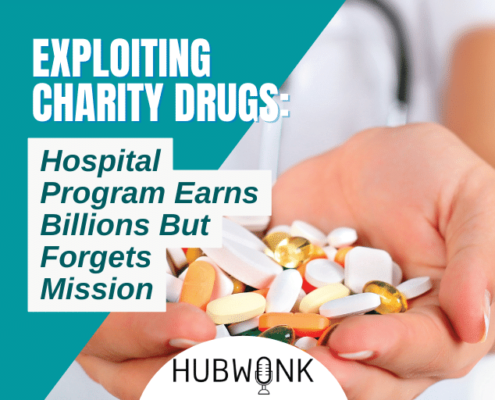
Exploiting Charity Drugs: Hospital Program Earns Billions But Forgets Mission
Hubwonk host Joe Selvaggi talks with Pioneer Institute’s Dr. Bill Smith about his recently released paper entitled, "340B Drug Discounts, An Increasingly Dysfunctional Federal Program," which analyzes the evolution of a well-intentioned program to offer discounted drugs to the uninsured from a benefit that had helped charitable hospitals to one that has exploded to generate billions in profits while serving fewer uninsured.
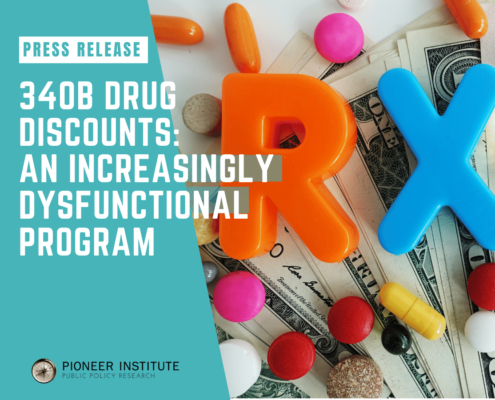
Massachusetts Hospitals Pull Back on Charity Care as Revenue from Federal 340B Drug Discount Program Explodes
Over the past decade, the revenue for hospitals generated by the federal 340B drug discount program, initially intended to serve low-income, uninsured populations, has exploded even while a number of important Massachusetts hospitals have reduced the level of charity care they provide, according to a new study published by Pioneer Institute. The Pioneer Institute study, “340B Drug Discounts: An Increasingly Dysfunctional Program,” notes that nationwide, 340B drug sales rose from $9 billion in 2014 to $38 billion in 2020.
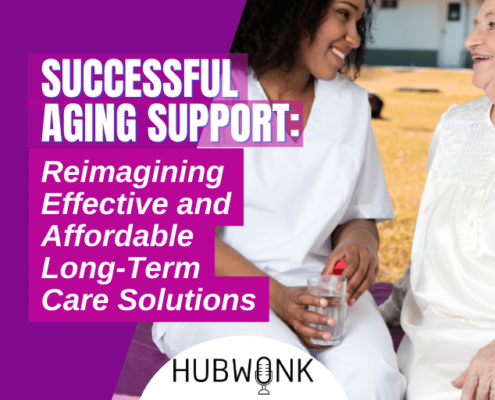
Successful Aging Support: Reimagining Effective and Affordable Long-Term Care Solutions
Hubwonk host Joe Selvaggi talks with Brookings Institution Senior Fellow and healthcare policy expert Stuart Butler about the challenge of building long-term care systems and institutions that will support Americans as they age, without depleting assets and bankrupting the social safety net.

Pandemic Dead Reckoning: Unseen Casualties of Public Health Interventions
Hubwonk host Host Joe Selvaggi talks with Pioneer Institute’s Senior Fellow Dr. Bill Smith about new evidence that during the past two years of the pandemic, there were as many unseen excess deaths from non-Covid-related diseases as seen from Covid. They discuss the need for public health leaders to pivot their messaging to address this hidden mortality.

Why the jump in non-COVID deaths?
The Wall Street Journal echoes our warning about the rise of non-COVID-related deaths.
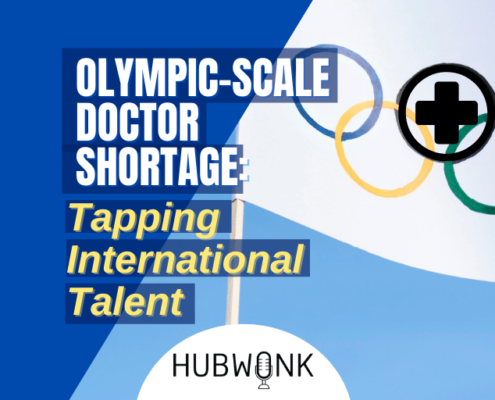
Olympic-Scale Doctor Shortage: Tapping International Talent
Host Joe Selvaggi talks with Pioneer Institute's Senior Healthcare Policy Fellow Josh Archambault about the shortage of doctors in the U.S. and the potential for licensing reform to attract medical expertise from around the world to reduce future healthcare shortages and provide incentives for immigrating professionals to work in underserved communities.

How did COVID impact Massachusetts’ long-term care facilities?
Pioneer Institute has filed a Public Records Act request related to COVID's impact on Massachusetts’ long-term care facilities because the Institute believes this is a matter of obvious importance, both on principle (the public has a right to know the facts), and for purposes of evaluating – and where possible improving – public policy.

Massachusetts Telehealth Report Card: Are We Embracing Disruption for Better Quality of Care?
Hubwonk host Joe Selvaggi talks with Pioneer Senior Fellow in Healthcare Josh Archambault about his newest research paper, produced with the Cicero Institute and the Reason Foundation, on states' success in implementing telehealth to improve healthcare outcomes. They discuss how Massachusetts has used remote medicine to better reach patients and serve their needs.

Am I Contagious? Divining Covid’s Community Conundrum
Hubwonk host Joe Selvaggi talks with Alva10 CEO and precision medicine expert Hannah Mamuszka about which tests are best for determining who is contagious and the implications for the CDC’s new isolation recommendations.

Face Masks Lifted: Scientists Weigh In With Comprehensive Efficacy Studies
Hubwonk host Joe Selvaggi talks with Harvard Medical School professor, Dr. Jonathan Darrow, about the observations of his recent paper, Evidence for Community Cloth Face Masking to Limit the Spread of SARS-CoV-2: A Critical Review, in which he examines the range, quality, and scientific observations of mask wearing efficacy studies.
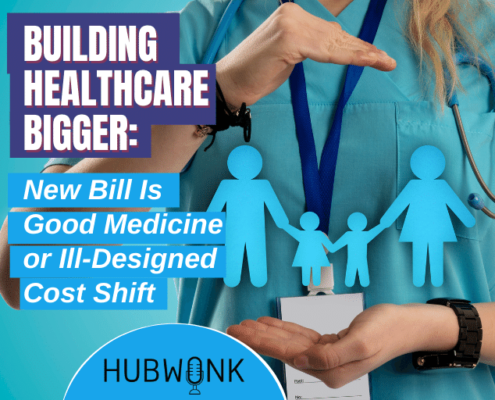
Building Healthcare Bigger: New Bill Is Good Medicine or Ill-Designed Cost Shift
This week on Hubwonk, host Joe Selvaggi talks with Josh Archambault, Pioneer Institute’s Senior Fellow in Healthcare, about the healthcare provisions in the pending Build Back Better Act and their likely impact on the coverage and cost to Americans in the wake of Covid-19.

The Promise and Challenges of Rare Cancer Treatments
Dr. William Smith, Pioneer Institute's Visiting Fellow in Life Sciences, spoke about the challenges and opportunities for rare cancer treatments, in a video interview produced by Rare Cancers, a patient group based in Australia, for the November 26th CAN Forum.
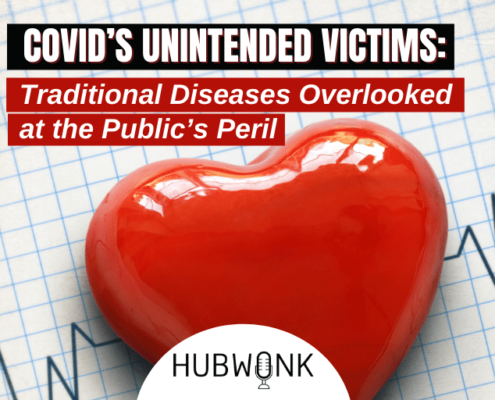
COVID’s Unintended Victims: Traditional Diseases Overlooked at the Public’s Peril
This week on Hubwonk, host Joe Selvaggi talks with Pioneer Institute’s Visiting Fellow in Life Sciences, Dr. Bill Smith, about his newest research paper, “An “Impending Tsunami” in Mortality from Traditional Diseases,” which sounds the alarm that the public health community’s focus on COVID-19 has caused many to avoid seeking medical attention for other illnesses. As a result, more Americans are dying from fear of COVID than from the disease itself.
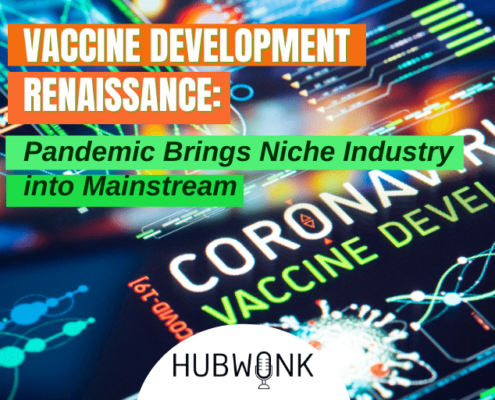
Vaccine Development Renaissance: Pandemic Brings Niche Industry into Mainstream
This week on Hubwonk, host Joe Selvaggi talks with virologist, Dr. Peter Kolchinsky, about the explosion of vaccine technologies and innovations brought into the spotlight by the massive investment to fight the pandemic, and dives deeply into the exciting promise of vaccines to combat an ever-widening range of disease.
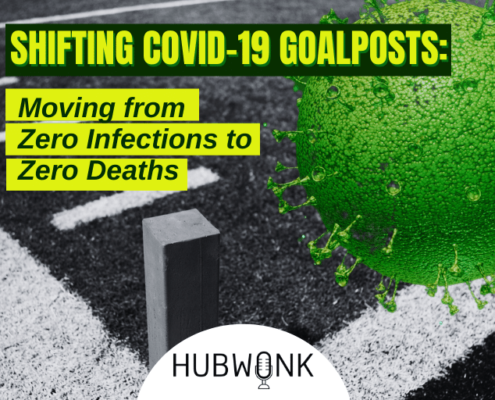
Shifting COVID-19 Goalposts: Moving from Zero Infections to Zero Deaths
This week on Hubwonk, host Joe Selvaggi talks with surgeon and author Dr. Marty Makary about the power and durability of vaccines, natural immunity and clinical therapies, that are overshadowed by the public health community's continued target of zero COVID-19 infections.

An Act advancing health care research and decision-making centered on patients and people with disabilities
On November 9th, 2021, William Smith, Pioneer Institute Visiting Fellow in Life Sciences, submitted the following testimony to the Massachusetts Legislature in support of House Bill 201, which addresses a number of flaws and infirmities in the Quality Adjusted Life Years (QALYs) methodology that is utilized by a number of foreign nations in evaluating the value of medicines.

Study: Decline in Cardiovascular Health Screenings During COVID-19 Pandemic Poses New Public Health Threat
Pioneer Institute today released a new analysis focused on cardiovascular disease, An “Impending Tsunami” in Mortality from Traditional Diseases?, that examines how the COVID-19 pandemic has created another unrelated public health crisis. The Pioneer analysis examines how a single-minded public health focus on COVID-19, social distancing, and lockdowns drove reductions in screenings, diagnoses, and early treatment for complex conditions such as heart disease.

A Modest Proposal to Raise Federal Revenue
As a way to tackle drug prices, President Joe Biden recently announced that he supports the so-called “inflation rebate,” which would require drug companies to give the federal government any revenue from Medicare drug prices above the general rate of inflation. Senate Finance Committee Chairman Ron Wyden and House Speaker Nancy Pelosi have also publicly endorsed the inflation rebate.

Untangling Variants & Outbreaks: Can Vaccines & Natural Immunity Outrun Delta?
Hubwonk host Joe Selvaggi talks with author, surgeon, and public health expert Dr. Marty Makary about the COVID-19 Delta Variant, the durability of natural and vaccinated immunity, the benefits of booster shots, and the health risks for children as we move into the fall.

Targeting Pharma: Infrastructure Bill Employs Price Controls To Offset Unprecedented Price Tag
Hubwonk host Joe Selvaggi talks with Pioneer Institute Visiting Fellow in Life Sciences Dr. William Smith about how the price control features of the emerging $3.5 trillion infrastructure bill might affect the pharmaceutical Industry, both nationwide and here in Massachusetts, and what effect that change will have on drug consumers.

Alzheimer Breakthrough Disillusionment: Confusion on FDA’s Approval of Expensive and Possibly Ineffective Drug
Hubwonk host Joe Selvaggi talks with precision medicine expert Hannah Mamuszka and Pioneer Institute's Bill Smith about the promises and pitfalls of the newly approved Alzheimer’s drug Aduhelm, and the challenges presented when new, expensive drugs of dubious benefit are introduced to the nation’s formulary.
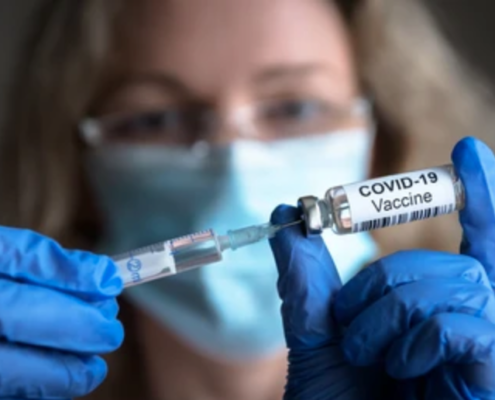
Comparing Covid-19 Vaccination and New Infection Rates in Suffolk County: Is Vaccination Working?
Massachusetts ranks fourth nationally for the highest percent…

Dr. Babak Movassaghi on Winning in Football & Healthcare Innovation
This week on JobMakers, Host Denzil Mohammed talks with Dr. Babak Movassaghi, founder of InfiniteMD (acquired last summer by ConsumerMedical), which connects patients with top U.S. medical professionals through second-opinion video consultations, guiding patients to better care. When the world shut down due to COVID-19, Dr. Movassaghi's company was already prepared to serve patients via telehealth. In this episode, they discuss his fascinating pivot from physics and professional football in Germany, to healthcare and innovation here in the U.S., an extension of his ability to navigate multiple identities as an Iranian-German living the American Dream.
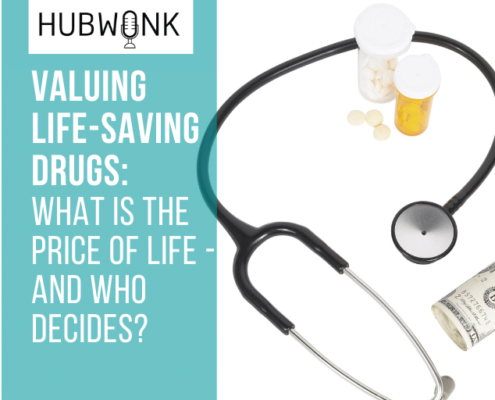
Valuing Life-Saving Drugs: What is the Price of Life and Who Decides?
Hubwonk host Joe Selvaggi talks with Pioneer Institute visiting fellow Dr. Bill Smith about Quality Adjusted Life Years (QALY) standards, and the ways in which so-called objective cost-containing strategies use expert opinion to determine the value of a life and thereby disadvantage the elderly, disabled, and those with less common vulnerabilities to disease.

Study: Massachusetts Should Retain Additional Healthcare System Flexibility Granted During Pandemic
Massachusetts’ emergency declaration for COVID-19 ends on June 15, and with it some enhanced flexibility that has been allowed in the healthcare system. Some of the added flexibility highlighted barriers that make the system more expensive, harder to access and less patient-centered, and the Commonwealth should consider permanently removing these barriers, according to a new study published by Pioneer Institute.

Study Calls for Better Reporting on Impact of COVID-19 in Eldercare Facilities
Over time, the Massachusetts Executive Office of Health and Human Services and Department of Public Health (DPH) have improved reporting about cases and deaths from COVID-19 in state-regulated eldercare facilities, but flaws and omissions remain and should be corrected, according to a new study published by Pioneer Institute.

Massachusetts Should Disclose More Information about Its Recent Reduction in the Official Count of Long-term Care Deaths
The public -- particularly in Massachusetts, where COVID-19’s toll on elders has been so great -- has a right to know how many deaths occurred in state-regulated eldercare facilities, and how that compares to the total number of deaths. But the state's new counting standard clouds this information, and should be corrected or at least disclosed.

Preparing For Disaster: Health Readiness Expert’s Performance Review
Hubwonk Host Joe Selvaggi talks with Emergency Preparedness expert Dr. Paul Biddinger about how experts plan for disasters, and what went right and wrong in this pandemic.
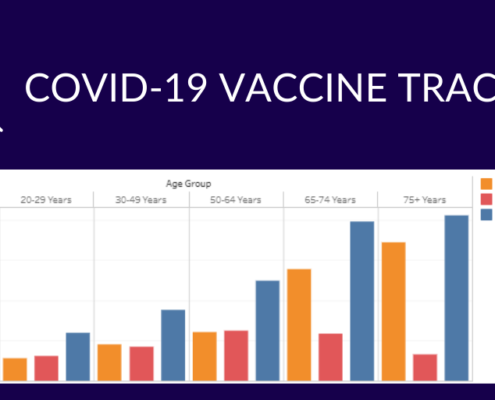
COVID-19 Vaccine Tracker
Pioneer is proud to present a new vaccine tracker, the newest tool in our COVID-19 tracking project. Pioneer distilled the vaccination data down to those who are either fully vaccinated or partially vaccinated, by all the demographic categories published by the DPH. Use the new tool below to compare rates among groups, by municipality and by county. We will update the data every week.

Doctor Heal Thyself: Insider’s Prescription For Healthcare Reform
Host Joe Selvaggi talks with surgeon and New York Times bestselling author Dr. Marty Makary about the healthcare reform themes in The Price We Pay, the 2020 Business Book of the Year. The discussion covers the value of price transparency, provider accountability, and performance information to drive better medical outcomes and improve doctor and patient satisfaction.
